Tuesday Triage #19
- TUESDAY TRIAGE #19 by Vadim Drobinin
- On busy days
- Things I enjoyed reading
- 1. We’re Optimizing Ourselves to Death by @zandercutt
- 2. Ian Fleming Explains How to Write a Thriller by Emily Temple
- 3. Comparing iPhone OS 1.0 with iOS 14 using tree maps by @timacfr
- 4. How I Spend My Attention by @kenta_nagamine
- 5. When Tipping Was Considered Deeply Un-American by Nina Martyris
- 6. We Are Built to Forget by Meredith Hall
- 7. What I Learned From Going on 100+ First Dates Before Meeting My Soulmate by Todd Lincoln
- 8. I should have loved biology by James Somers
- 9. The Rise and Fall of Getting Things Done by Cal Newport
- 10. Booting from a vinyl record by Jozef Bogin
- Things I didn't know last Tuesday
- 1. Writers in Iceland
- 2. Popcorn in the 1800s
- 3. Annie Edson Taylor
- 4. katzenjammer
- 5. Tablespoon to Teaspoon ratio
- 6. Ray Bradbury's special editions of Fahrenheit 451
- 7. Darnel
- 8. Dancing droplets
- 9. Lomtalanítás
- 10. John Walker
- 11. Christmas cake
- Book of the week
- Thank you and see you in a week!
TUESDAY TRIAGE #19
by Vadim Drobinin ¶
Your weekly crème de la crème of the Internet is here!
24.11.2020 (read in browser)
On busy days ¶
That last week has been exceptionally busy but in a pleasant way.
NSSpain was a blast, and I thoroughly enjoyed every single bit of it, from others' talks to giving a talk myself to chatting with fellow attendees during breaks.
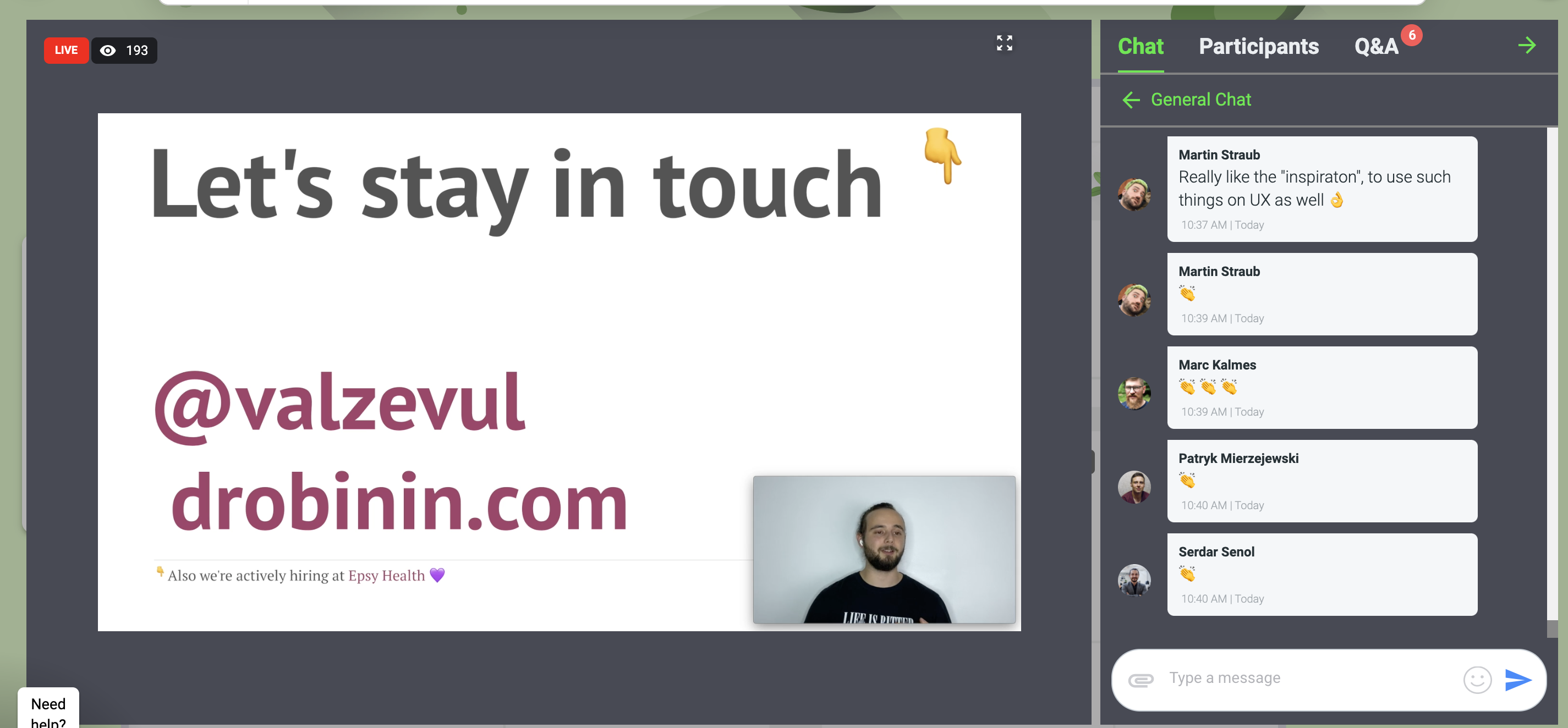
We had a non-stop seven hours call after the conference with philosophical questions to discuss and lots of wine to finish, and it was a great pleasure to catch up with some of the folks I've met along the way over the last few years.
The first batch of home-brewed beer was ready during the weekend, too. As I have mentioned, despite being a fan of either stronger or less bread-y drinks, it still felt like a worthy experience. In the end the effort was well-rewarded, and the beer proved to be smooth and full of flavour.
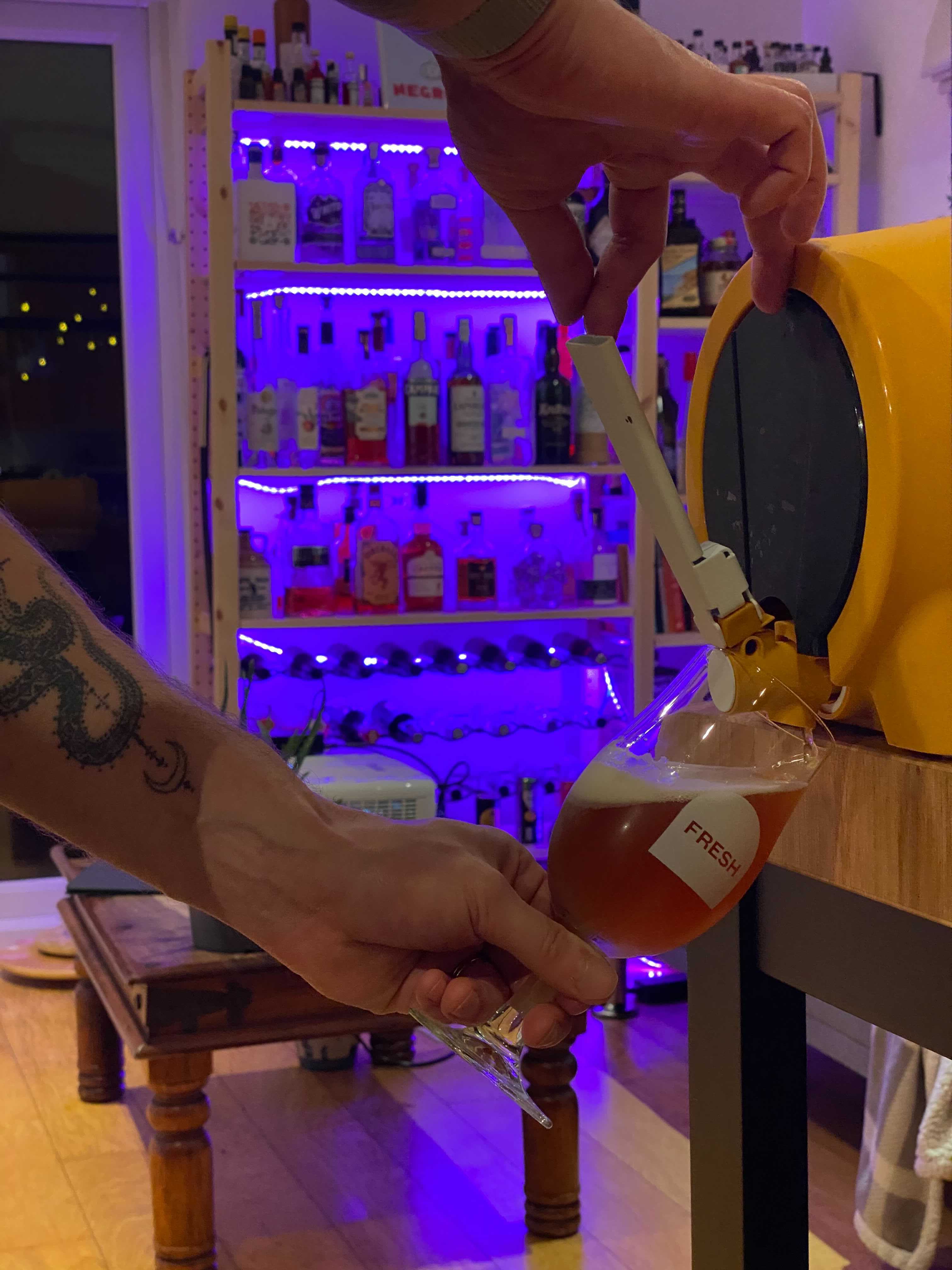
We also gave a try to some further exploration of cooking techniques: from sous-vide squids finished on a BBQ, to deeply marinated and grilled tiger prawns.
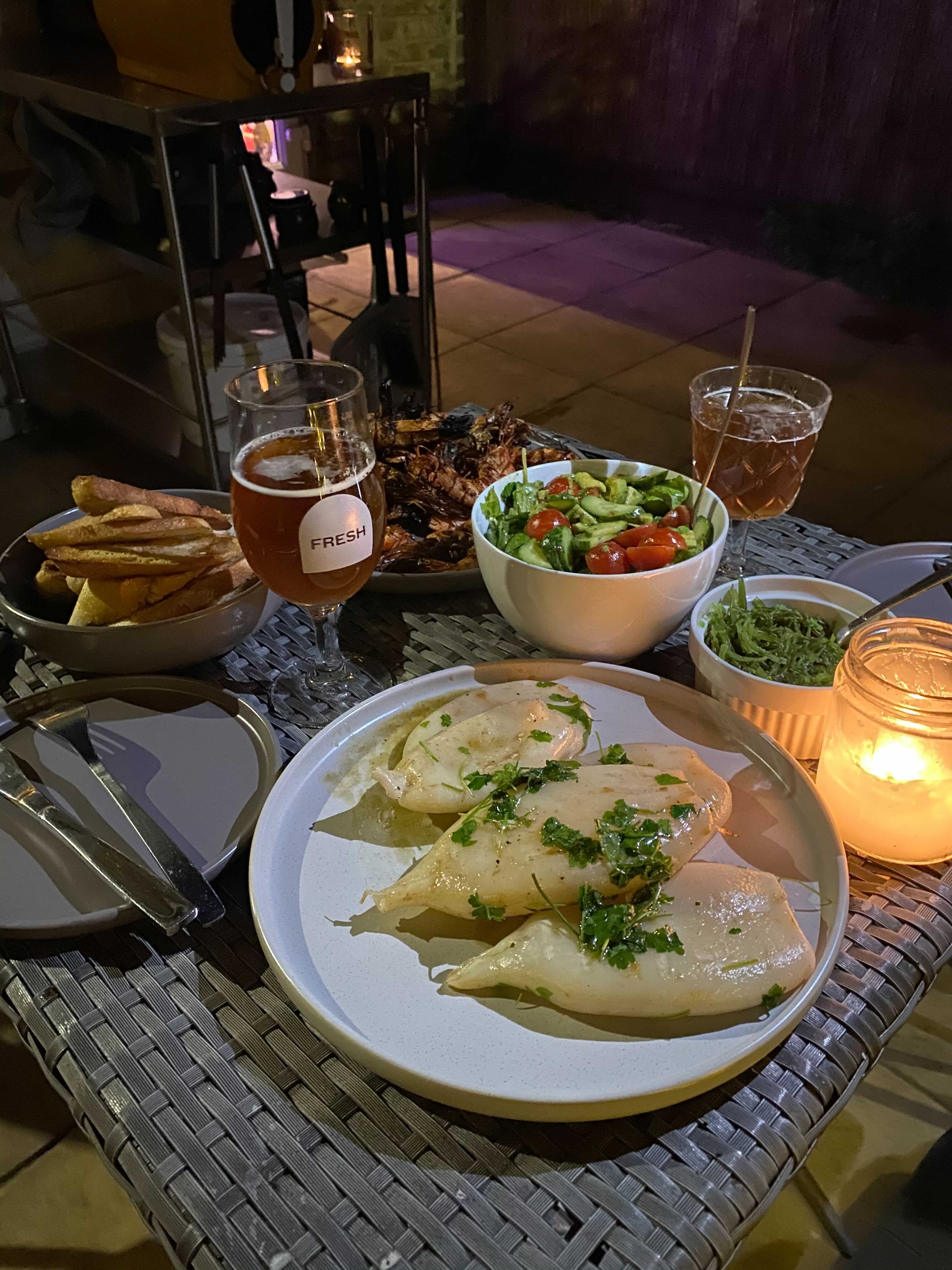
Christmas is around the corner as well, so I am trying not to get overly excited about the opportunity to take a bunch of days off and cook Beef Wellington again and again.
Things I enjoyed reading ¶
1. We’re Optimizing Ourselves to Death by @zandercutt ¶
A very smart usage of the "prisoner’s dilemma" to prove that we optimise a wrong thing and lead ourselves to a burnout.
In other words: Attempts by companies like Google or Freshly to create services that save you time misfire, as millennials see them not as services that will give them more time to relax, but as services that will increase the amount of time they’re available to work.
As employees in a hyperproductive, work-obsessed world, we’ve become acutely aware of any opportunity for optimization. Our Instagram feeds are filled with every possible combination of meal delivery service and online shopper that exists. Startups emerge daily to automate every mundane activity ever scrawled on and scratched off a legal pad.
2. Ian Fleming Explains How to Write a Thriller by Emily Temple ¶
But these qualities will not make a best seller. There is only one recipe for a best seller and it is a very simple one. You have to get the reader to turn over the page.
If you look back on the best sellers you have read, you will find that they all have this quality. You simply have to turn over the page.
Nothing must be allowed to interfere with this essential dynamic of the thriller. This is why I said that your prose must be simple and unmannered. You cannot linger too long over descriptive passages.
I often wonder what would be the online equivalent of turning the page over? This newsletter is not optimised for people clicking links, quite an opposite, and there is no clear difference between the pages while one scrolls.
3. Comparing iPhone OS 1.0 with iOS 14 using tree maps by @timacfr ¶
I barely remember iOS 1.0 and yet it doesn't prevent me from enjoying these charts:
When iPhone OS 1.0 was released in 2007, it redefined the smartphone with a limited set of core features. Nowadays iOS 14 contains an incredible amount of components. By looking at them based on their size, we can determine the most important features. We thus distinctly see Apple's AI push into on-device machine learning with technologies like object detection in images and video, language analysis, sound classification and text recognition.
(almost a quarter of iPhone OS 1.0 were fonts!)
4. How I Spend My Attention by @kenta_nagamine ¶
By default, it's hard to be the attention giver when the activity is not participatory. I could spend all day watching YouTube videos without genuinely paying any attention to them.
In contrast, doing activities that require the investment of your attention tends to be more satisfying.
The hard mode is trying to feel joy passively scrolling my social media feed. However, this doesn't make me quit using social media because many things just awe me or make me think on the internet. Those are the things that grab my attention and turn into real experiences.
This is very true. Bringing attention to a passive activity is something I always lacked back then at uni, and hardly got any better nowadays but at least I was always decent enough at living the moment through.
5. When Tipping Was Considered Deeply Un-American by Nina Martyris ¶
When I visited the State five years ago I was fairly surprised to learn that prices in menus are not final, and someone will always cross the bill's total out and write some other number with a pen. First, I tipped as it was the expected thing to do. Then I stopped doing that I shielded myself away from their condemnation behind rough Russian accent and a grumpy smile. Even later I learn how broken the system is, where folks have to rely on tips without any minimum wage.
When tipping began to spread in post-Civil War America, it was tarred as "a cancer in the breast of democracy," "flunkeyism" and "a gross and offensive caricature of mercy." But the most common insult hurled at it was "offensively un-American."
Loathed as a master-serf custom of the caste-bound Old World that went back to the Middle Ages, tipping was blamed for encouraging servility and degrading America's democratic, puritanical, and anti-aristocratic ethic.
The good thing is, these days more and more restaurants commit to honest and transparent salaries and ban tipping completely, as it should be.
6. We Are Built to Forget by Meredith Hall ¶
An unusual perspective on the mechanics of memory. People struggle with memorising things and spend years to perfect these skills, and yet thousands of years of evolution didn't really help.
We must forget in order to make room for remembering. We now have a metaphor for this process: delete. Here is oblivion. But here, too, is our hunger to know the full story. Our forgetting is the saboteur of that hope. I was on a basketball team with friends and classmates for three years. If we practiced or played games for one hundred twenty minutes five days of the week, for ten weeks of the season, where are those eighteen thousand minutes?
So what if that is meant to be the way it is?
7. What I Learned From Going on 100+ First Dates Before Meeting My Soulmate by Todd Lincoln ¶
I enjoyed reading this article and yet I disagree with the majority of it: some bits made me nod in agreement, some were fairly questionable, but the majority of paragraphps just left me laughing outloud.
Halfway through my dating journey, I hired a dating coach to help improve my profile. It was expensive, but it made a huge difference. After that, I regularly got compliments on how genuine and funny my profile was.
At least I have learnt that there are people who earn money for making someone's profile look "genuine".
8. I should have loved biology by James Somers ¶
For four years of my life I was messing with others' DNA. I was sequencing it, tearing it apart and glueing it back, finding patterns and proving hypothesis.
And yet I never got to love neither biology nor chemistry. The former felt too far from the real world one could measure and manage, and the latter was painfully unpleasant back then at high school.
However, I managed to move everything there is to know about both of them into the fields of natural language processing, and DNA turned into words in a simple 4-letter alphabet.
How come we memorized chemical formulas but didn’t talk about that? It was only in college, when I read Douglas Hofstadter’s Gödel, Escher, Bach, that I came to understand cells as recursively self-modifying programs. The language alone was evocative. It suggested that the embryo—DNA making RNA, RNA making protein, protein regulating the transcription of DNA into RNA—was like a small Lisp program, with macros begetting macros begetting macros, the source code containing within it all of the instructions required for life on Earth. Could anything more interesting be imagined?
Probably, just probably, I should have loved biology, too.
9. The Rise and Fall of Getting Things Done by Cal Newport ¶
I remember how years back everyone was obsessed with GTD and similar techniques. It never worked for me well enough, unless I was doing something totally unrelated to coding, thinking, or interacting with others (hence it worked great when I was on holidays).
While there are folks out there, who could use this system to get things done, I'd err on the author's side here:
In this context, the shortcomings of personal-productivity systems like G.T.D. become clear. They don’t directly address the fundamental problem: the insidiously haphazard way that work unfolds at the organizational level. They only help individuals cope with its effects. A highly optimized implementation of G.T.D. might have helped Mann organize the hundreds of tasks that arrived haphazardly in his in-box daily, but it could do nothing to reduce the quantity of these requests.
There are ways to fix the destructive effects of overload culture, but such solutions would have to begin with a reëvaluation of Peter Drucker’s insistence on knowledge-worker autonomy. Productivity, we must recognize, can never be entirely personal. It must be connected to a system that we can study, analyze, and improve.
10. Booting from a vinyl record by Jozef Bogin ¶
Ah, another weekend DIY project comes at me right here:
Most PCs tend to boot from a primary media storage, be it a hard disk drive, or a solid-state drive, perhaps from a network, or – if all else fails – the USB stick or the boot DVD comes to the rescue… Fun, eh? Boring! Why don’t we try to boot from a record player for a change?
Things I didn't know last Tuesday ¶
1. Writers in Iceland ¶
One it ten people in Iceland publishes a book during their life:
It is hard to avoid writers in Reykjavik. There is a phrase in Icelandic, "ad ganga med bok I maganum", everyone gives birth to a book. Literally, everyone "has a book in their stomach". One in 10 Icelanders will publish one.
Given that my memoirs were successfully printed and published four years ago, I might fit there quite well.
2. Popcorn in the 1800s ¶
Popcorn as a breakfast cereal was consumed by Americans in the 1800s and generally consisted of popcorn with milk and a sweetener.
It doesn't surprise me when I think about this as a dish, and yet I'd probably never come up with that on my own.
3. Annie Edson Taylor ¶
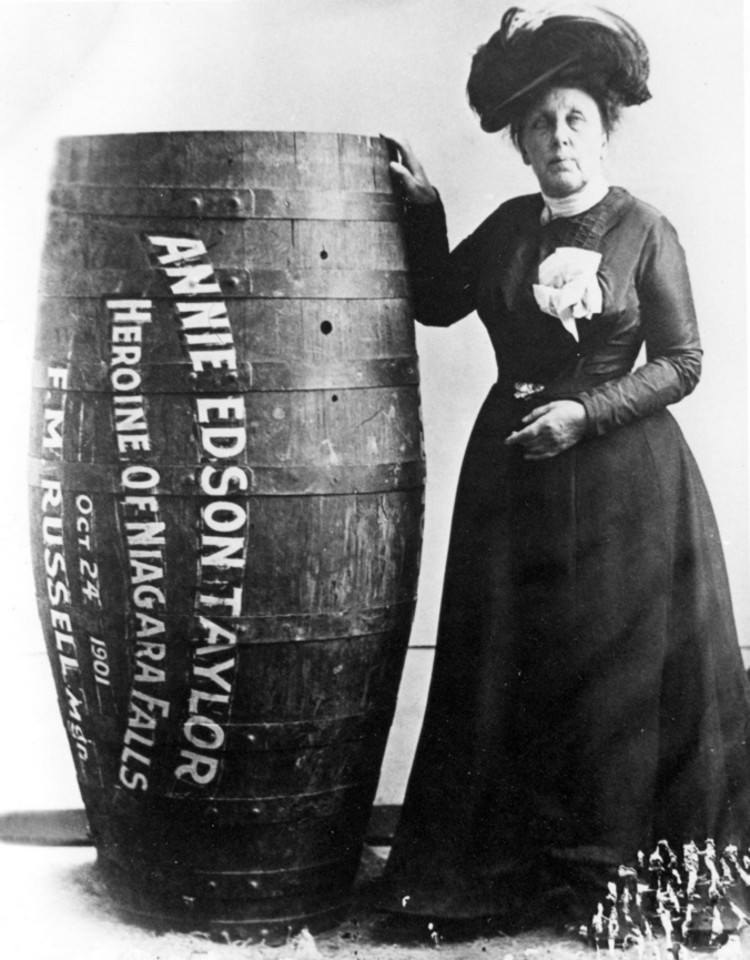
Annie Edson Taylor (October 24, 1838 - April 29, 1921) was an American schoolteacher who, on her 63rd birthday, October 24, 1901, became the first person to survive a trip over Niagara Falls in a barrel. Her motives were financial but she never made much money from her adventure.
A sad and yet hilarious bit here is that her manager ran away with her barrel, and most of her savings were used towards private detectives hired to find it, hence she didn't get rich.
4. katzenjammer ¶
There was no word "hangover" till 1894, but the hangover itself was a thing, so poor British folks had to use a German word for "cat's wail".
In the English speaking world it is often used as a term for a hangover, with the sufferer's groans of discomfort being likened to a wailing cat.
I think it counts as suffering twice.
5. Tablespoon to Teaspoon ratio ¶
In most places except Australia, one tablespoon equals three teaspoons.
What's in Australia you might ask? Good question, in Australia one tablespoon equals four teaspoons.
6. Ray Bradbury's special editions of Fahrenheit 451 ¶
There are four first editions of Fahrenheit 451 that can be found. First is the soft cover edition released about six weeks before the hardcover version, which, despite being second in the timeline, is usually preferred by collectors. The hardcover commands four figures for a decent copy and more when signed. The special fire-proof asbestos cover edition that was limited to 200 copies is rarely seen priced at less than $10,000. The granddaddy of them all is the special cloth and gilt presentation copy which Bradbury had specially bound and limited to 50 copies.
Out of all these editions I find the fire-proof one to be the most fascinating, meaningful, and yet terribly pricey.
7. Darnel ¶
So imagine cereal crops but evil.
In a big enough dose, this grass, darnel, can kill a person, and farmers would have to take care to separate it out from their true harvest—unless they were planning to add darnel to beer or bread on purpose, in order to get high.
And yep, this grass looks pretty much the same.
8. Dancing droplets ¶
Droplets of food coloring could sense each other and move in a "molecular minuet":
Essentially, the droplets danced because of a delicate balance between surface tension and evaporation.
Evaporation is easily understood. On the surface of any liquid, some molecules convert to a gaseous state and float away.
Surface tension is what causes liquids to bead up. It arises from how tightly the molecules in a liquid bind together.
9. Lomtalanítás ¶
That'd be my favourite day of the year if I were to move to Budapest.
The occasion of “lomtalanítás” – very roughly translating to “get-rid-of-junk day” – provides free bulk-garbage disposal for some and a livelihood for others, along with countless curiosities for the casual observer who strolls through this revealing Budapest system of clutter removal and wealth redistribution.

10. John Walker ¶
This chemist invented a match by accident and decided not to patent it:
But the exact way the match was discovered is a mystery. In a newspaper article of 1852, a “fortuitous accident” is suggested. Walker was preparing some lighting mixture for his own use, when a match, after being dipped in the preparation, took fire by accidental friction on the hearth.
11. Christmas cake ¶
Christmas cake is an English tradition that began as plum porridge. A traditional English Christmas Cake is made with rich, moist currants, sultanas (golden raisins) and raisins which have been soaked in rum.
So a cake, a porridge, and also a living thing: these cakes age for months, and should be fed with alcohol every other day.
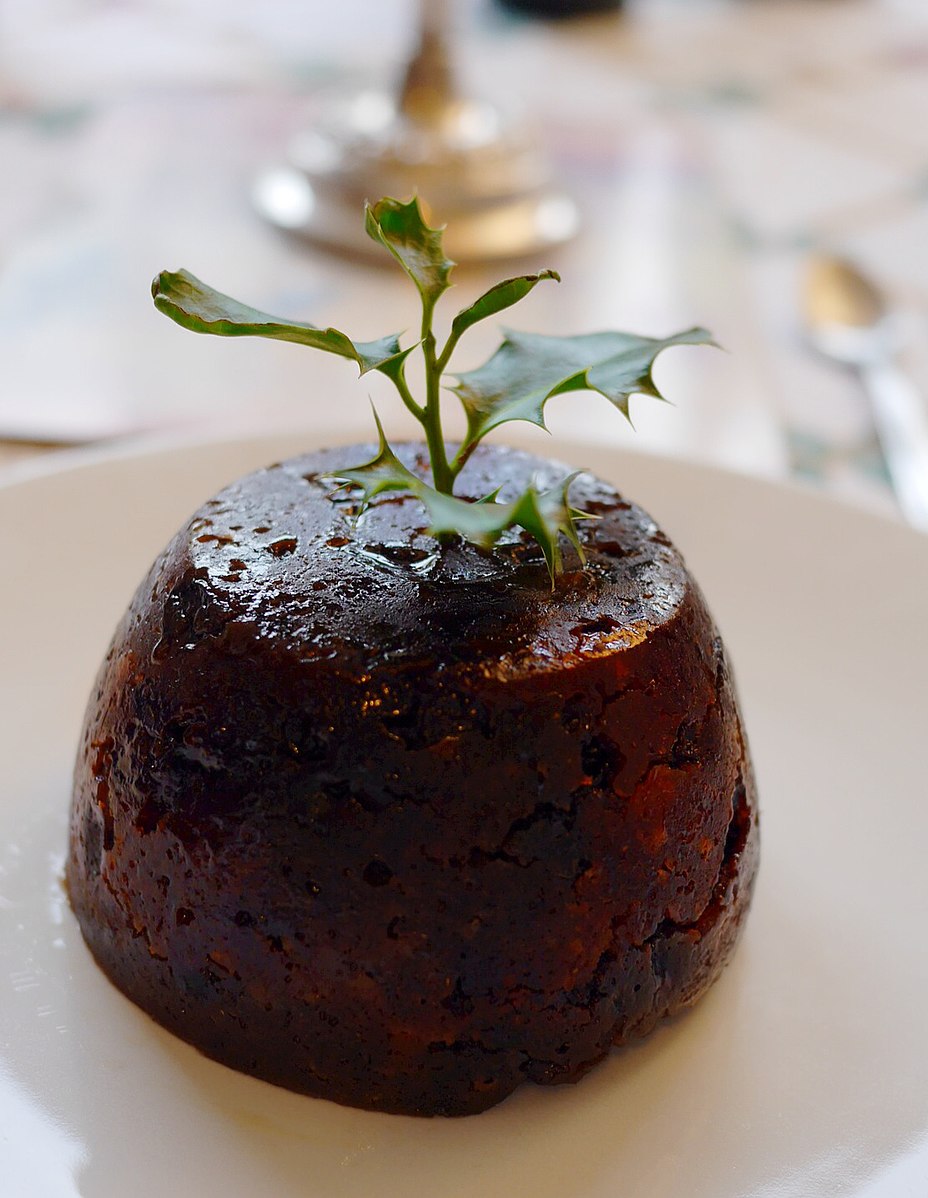
Book of the week ¶
When it comes to music, I am a man of simple taste.
I can't stand music with distinguishable words if I need to think, so for years I had Art of Noise's Moments in Love playing in background on repeat.
Once I don't need to think anymore, I switch to the likes of Falco, Nick Cave, and Frank Sinatra.
Coincidentally (not really), from Tom Smith's book One For My Baby: A Sinatra Cocktail Companion:
The album's title track and closing song – 'It's Nice to Go Trav'ling' - were specific commissions, written by Sammy Cahn and Jimmy Van Heusen. Cahn originally penned the famous line about 'exotic booze' and bars in far Bombay but decided to censor himself and substitute the word 'views' in place of 'booze'. The track was recorded with the more family-orientated line, but when Cahn mentioned in passing the change he had made Sinatra recalled all the musicians and did it again with the more appropriate word back in its rightful place.
A funny fact: this album was released as a response to America's love for exotic things in 1950s, hence the drinks of that era are mostly either Tiki cocktails or something decadently garnished, neither of which I admit to enjoy (unless they are very well done; hey, if something is done well I am happy to give it a try as far as it is not a steak).
Thank you and see you in a week! ¶
If you have any questions, or want to suggest a link for the next newsletter, please drop me a message on Twitter or reply to this email.
Cheers! 🍸
